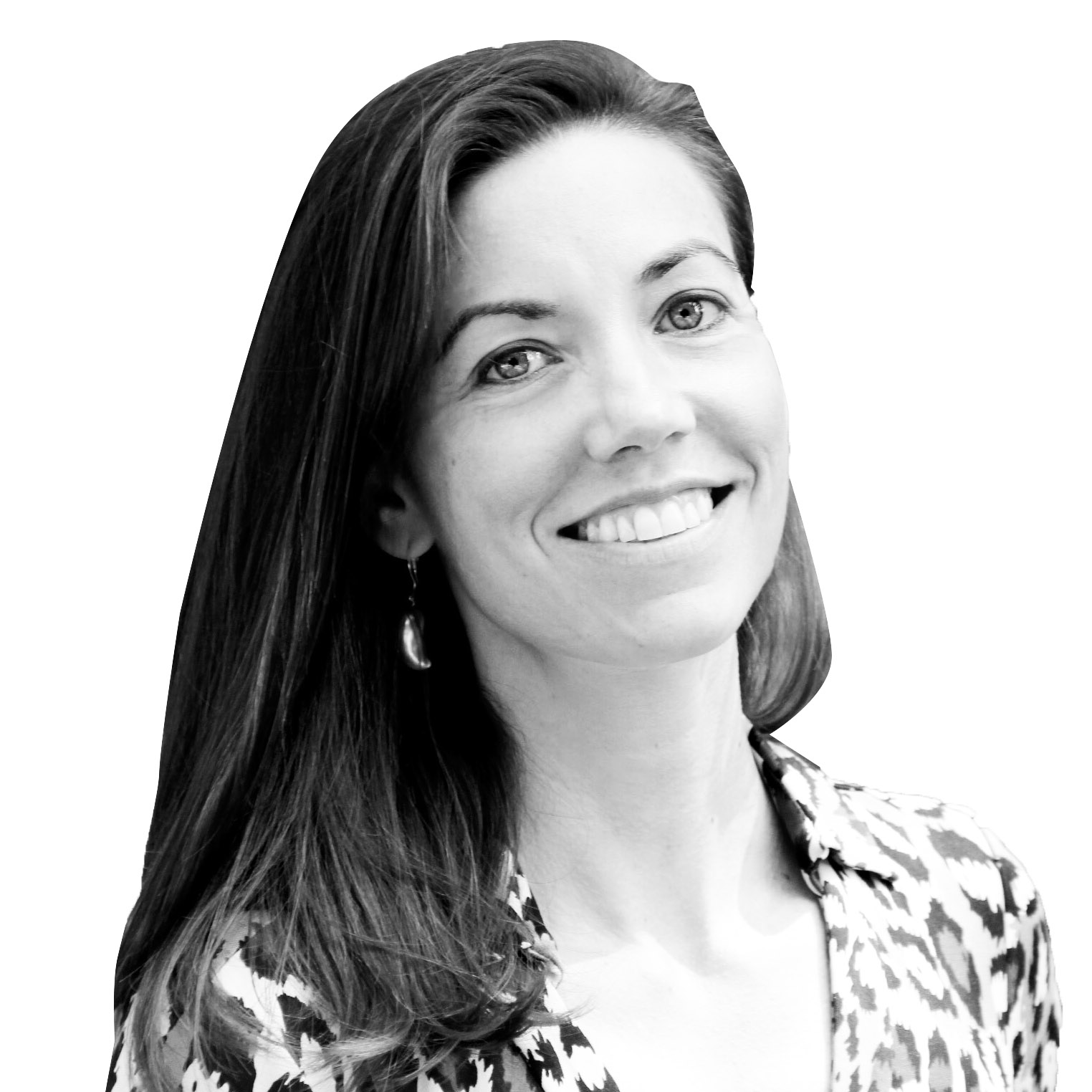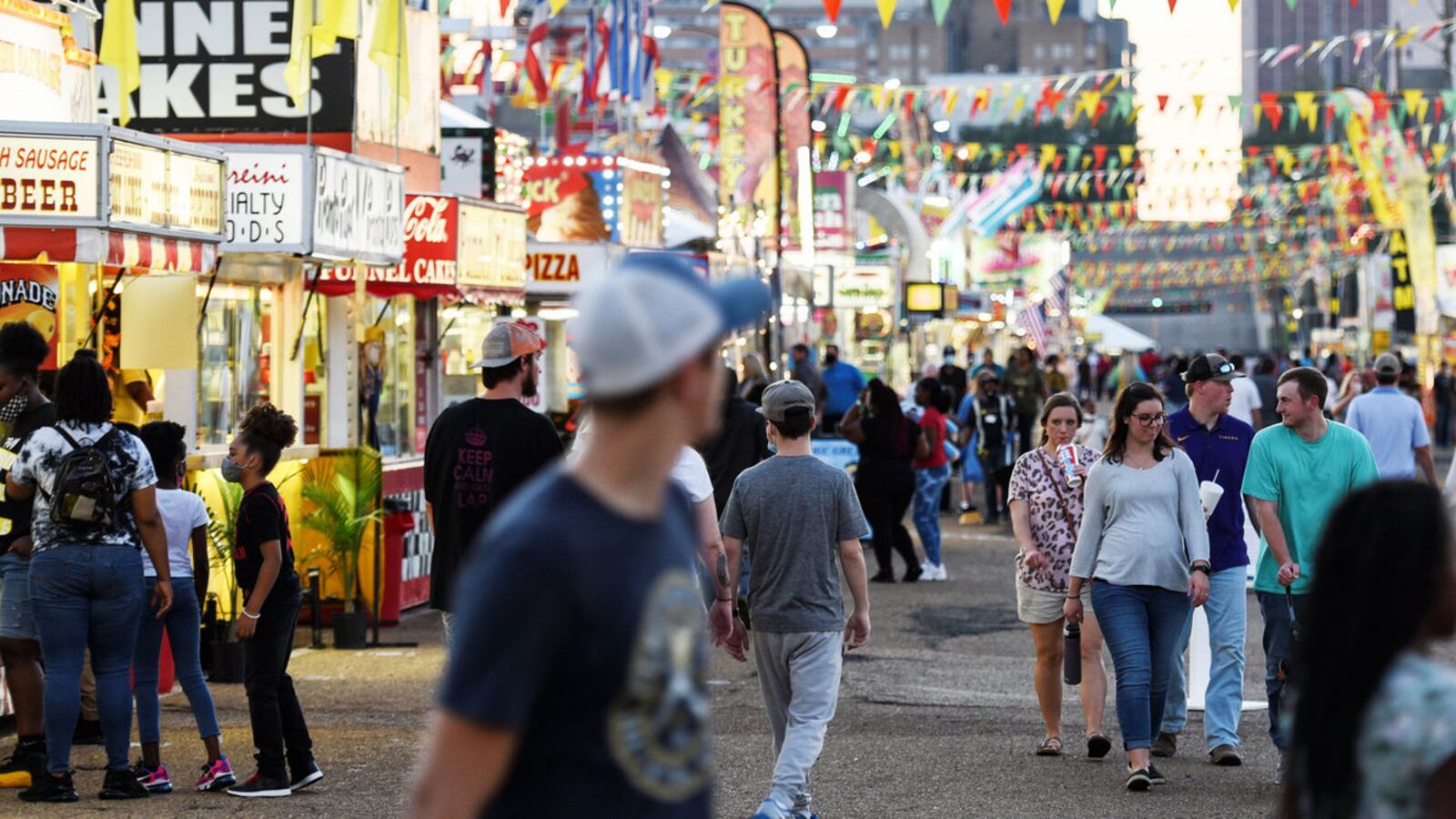Wayne Moak isn’t sure who first brought the coronavirus into the congregation at Clear Branch Baptist Church in rural Wesson, Mississippi, but when it got there in late September, “it spread fast,” he told The Daily Beast.
Within weeks, more than two dozen members of the congregation were sick, including Moak, his wife, son, and all three other staff members, he recalled.
Of course, this was exactly the scenario he’d been hoping to avoid when the church decided, in the early days of the pandemic, to set up his pulpit on the bed of a 20-foot trailer and conduct parking lot services. But that arrangement was short-lived. By June, with businesses around the state reopening and midday temperatures cracking 90 degrees, the decision to go toward air conditioning was met with little controversy.
Videos of these services, posted weekly to Facebook, show parishioners in the first few rows singing shoulder to shoulder. Masks were not required, and few people, including Moak, appeared to take it upon themselves to wear them.
“Look, I’m one of those who wears mine the least I can… The way things were, it wasn’t something we thought was necessary,” he told The Daily Beast.
The coronavirus raged through Mississippi’s cities and its poorer, predominantly Black counties this summer, eventually pushing the state to the highest rate of per-capita infections and deaths in the country. But Moak said that in Wesson, which is in predominantly white Lincoln County, “we weren’t seeing it so much.”
That equilibrium has shifted dramatically in the last month. The same week that Clear Branch had its outbreak, at least 24 students and teachers at the local public school, Wesson Attendance Center, tested positive. By mid-October, more than 150 students and teachers would end up in quarantine. A few minutes down the road in Brookhaven, a similar scenario played out, as outbreaks in the elementary and high schools there sent more than 100 students and teachers into quarantine.
“It’s just in our community right now. I wish I could see where it’s coming from, but I don’t have that magic wand,” Moak said.
But health experts think they do know: white people who refuse to wear masks.
After two months of steady declines, a second coronavirus wave is rising in Mississippi. On Friday, the state recorded 1,322 new infections, its highest single-day number since August. But the face of the pandemic in the state has shifted dramatically in that time. Mississippi, once a case study for how the coronavirus disproportionately sickens Black people in this country, is seeing its second wave driven by white Mississippians in rural parts of the state. The reason, according to Dr. Thomas Dobbs, the top health officer in Mississippi, is simple: Rural white communities aren’t taking the necessary precautions to avoid spreading the virus.
“We have had really pretty good uptake by a lot of folks in the Black community with masking and social distancing,” Dobbs said on a call with reporters last week. “… And I just want to say that I think big parts of the white community, especially in areas that maybe weren’t as hard-affected [this summer], have not been as compliant or engaged actively with social distancing and masking. And I think that does make a difference.”
On Oct. 9, deaths among white Mississippians surpassed those of Black Mississippians for the first time since the Mississippi State Department of Health publicly made racial data available in June. And the trend is likely to get worse. Between Sept. 16 and Oct. 14, new coronavirus infections among white Mississippians rose 26.8 percent, more than double the 12.6 percent rate of increase among Black Mississippians. As of Monday, the number of white and Black Mississippians diagnosed with the coronavirus was almost equal. In early July, the number of Black Mississippians with the virus had been double that of whites.
Despite rising case numbers, on Sept. 30, Tate Reeves became the first U.S. governor to let his statewide mask mandate expire. Reeves’ office declined a request for comment from The Daily Beast, but on Monday the governor announced he would be signing an executive order partially reinstating the mask mandate in nine counties where he said “spread was most rapid.”
“Here in Mississippi we’ve seen this movie before. We know what can happen if we allow this to get out of control. So we want to be proactive to prevent that from happening,” Reeves said.
Still, the limited scope of the mandate means it’s likely to have some blind spots, especially because one of the mandate’s triggers is a high number of cases, and many of the smaller counties where cases are rising rapidly can’t meet that threshold. Lincoln County, which includes Wesson and Brookhaven and which has seen cases rise 13 percent in two weeks—the fifth highest increase in the state—was not on the new mask-mandate list. Nor was Benton County, another rural area where cases have risen 15 percent in the last two weeks.
Epidemiologists point out that increased cases among white Mississippians are still likely to spell disaster for Black residents, who tend to be at higher risk of complications from the virus.
“The only job the virus has is to keep spreading because that’s the way it remains alive. And as long as people who have it aren’t complying [with risk reduction], it will keep spreading,” said William Schaffner, a professor of preventive medicine and infectious disease at Vanderbilt University Medical Center in Nashville. “And that will ultimately hurt people of color because they have had the worst outcomes.”
“You know, this virus knows no political affiliation. It has no religious affiliation. If it’s in one group, the way it survives is by spreading to the next group.”
The virus may not have a political affiliation, but the people who are deciding whether to follow public health guidelines do. And in Mississippi, white residents are more than five times as likely to be Republican as Black residents. Of the five counties where rates of new coronavirus infections are highest right now—Itawamba, Neshoba, Claiborne, Chickasaw, and Benton—all but Claiborne are predominantly white and rural and voted for President Trump in 2016.
“Identifying as a Republican is less about party identification than ideological identification,” said James M. Thomas, a professor of sociology at the University of Mississippi in Oxford. “And even after all this, people are still looking at Trump and saying, ‘That’s my guy.’ So when he does something, like making fun of Biden for wearing the biggest mask ever, or taking off his mask on that balcony right after he’s back from the hospital and still contagious, that’s a big statement to his supporters about masks.’”
On Sunday morning, Thomas said he drove his family to pick pumpkins at Cedar Hill Farm, just outside Hernando, a predominantly white and conservative suburb of Memphis, Tennessee. Thomas and his family, which is mixed race, wore masks. But the crowd was predominantly white and so few of them were wearing masks, Thomas said, that “we felt like we were making a political statement, going out in public with a mask on.”
“And I’m sure people looking at us, an interracial couple, saw us taking a politicized position,” Thomas said. Photos from Cedar Hill this weekend, obtained by The Daily Beast, back up his observation.
Cedar Hill doesn’t have a mask mandate, though DeSoto County—which includes it—will as of Wednesday, thanks to the governor’s order. But perhaps no Mississippian has been as publicly hostile toward mask-wearing as the farm’s owner Robert Foster, a conservative firebrand who unsuccessfully challenged Reeves for the Republican gubernatorial nomination last year. On Facebook and Twitter, Foster has labeled Reeves “Tyrant Tate” for imposing a mask mandate and has tried, also unsuccessfully, to get the hashtag #MaskOffMS to trend, writing that Reeves and Dobbs are “bullying every school child in the state with their senseless mandates,” a reference to Reeves’ decision to keep a mask mandate in place in Mississippi schools.
Despite the mask mandate’s limited scope, Reeves sounded almost apologetic announcing it Monday.
“As I’ve said many times throughout 2020, we have to avoid using the heavy hand of government, unless it is absolutely necessary. We should always be as limited as possible while never ignoring the risk of inaction,” Reeves said. “... But we saw this strategy work during the summer wave.”
The rise in cases in white communities that may have thought themselves safe from the virus is likely not confined to Mississippi’s borders. On Saturday, the under-10 Baseball Players Association team for Lincoln, Copiah, and Lawrence counties traveled an hour and a half to a seven-team tournament in Vidalia, Louisiana. Video provided to The Daily Beast shows nearly a hundred players and spectators, many clustered together talking. All appear white and none appear to be wearing a mask.
“We do a lot of tournaments and it’s the same thing, little to zero taking precautions,” said one parent at the tournament who asked The Daily Beast to withhold her name because her opinion was so unpopular in her community.
“[It’s] reckless,” she said. The Baseball Players Association did not immediately respond to a request for comment for this story.
Topher Brown, a resident of Brookhaven who owns the sanitation company that disinfected Clear Branch after its outbreak, said demand has surged recently, estimating that calls were up as much as 25 percent since August. Unfortunately, Brown said, the vast majority of these calls come only after a business has had an outbreak.
“It seems like people don’t really understand the severity of it until it hits home,” Brown said, noting that even when he shows up after an outbreak, “you don’t always see a lot of masks.”
His company, Sanitation Plus, also sprayed down Wesson Attendance Center, the public school that had its outbreak at the same time Clear Branch did. Although masks are required inside Mississippi schools, they aren’t outside of buildings. Video from Friday night’s football game against Amite County High shows almost exclusively white families on the bleachers and no masks.
“There’s no real reason why we can’t continue to do virtual learning during outbreaks, but schools around here carry on like it’s not a real thing—or a big deal,” the mother said.
Wesson Attendance Center did not respond to a request for comment for this story.
As for Clear Branch, services are moving back to the parking lot for the rest of October. But the weather’s getting colder, and while no decisions have been made, Moak admits that odds are good they’ll have to return indoors soon.
In terms of necessity, what he’s less sure about is whether they’ll ask parishioners to put on masks.
“The decision is based on where your people are, and if they’re not comfortable, then they’re not comfortable. You can’t really make them,” Moak told The Daily Beast.






